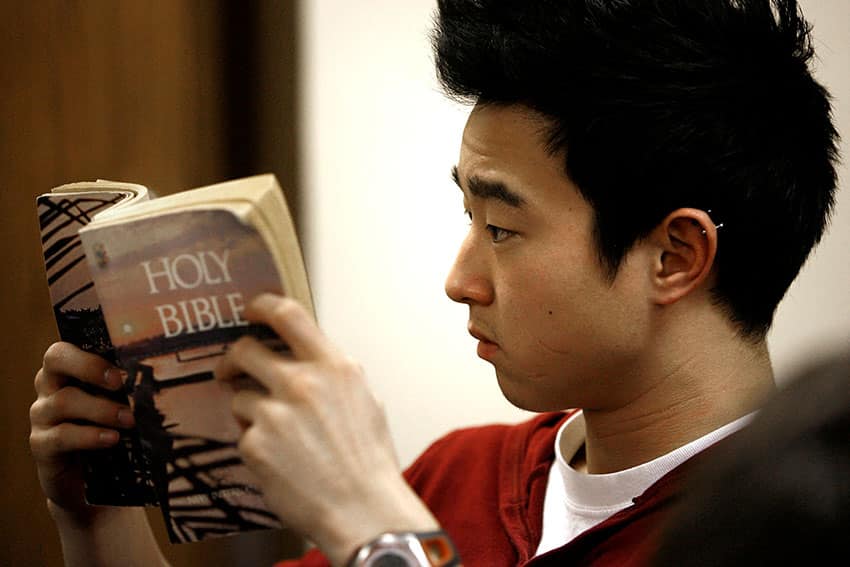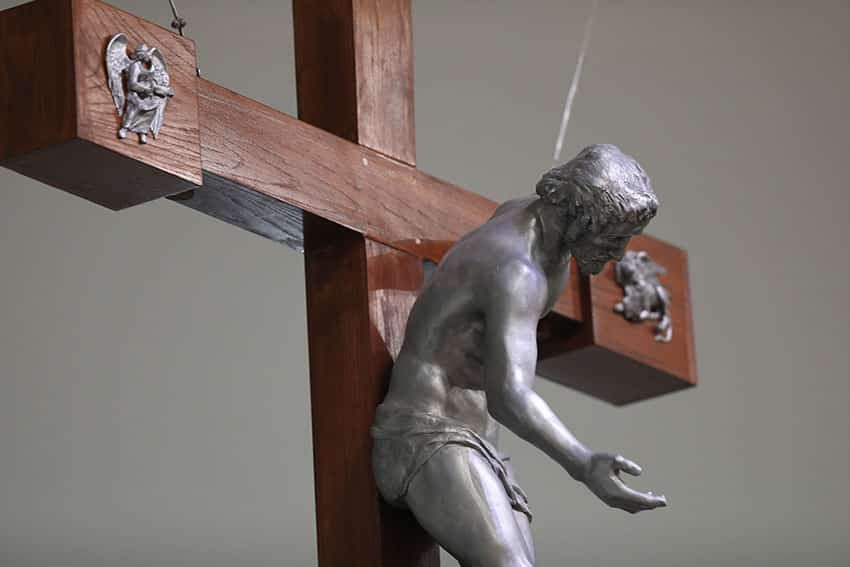
The first assembly of the Plenary Council is here. Between Pentecost this year and the first assembly which has just commenced a “prayer and reflection resource package” called Fan the Flame was being made available for use in “parishes, schools, universities, hospitals, and aged care facilities, to name a few.” The purpose of this package was to help us to pray for the work of the Plenary Council.
In the first assembly, using the Instrumentum Laboris (working document) as the basis for their deliberations, more than 280 members of the Council are now meeting over the coming week. During this time, the members of the Council will attempt to discern “what the Spirit is saying to the Church” in Australia. A fundamental question needs to be asked about what will happen at the first and subsequent assemblies. It is, “How will the members discern “what the Spirit is saying to the Church?”

Desire
I suggest that a first step should be an examination of their desires, followed by this question, “Do my desires conform to the desires of Jesus?” To answer this question, we must know what the desires of Jesus are. In the Gospels we are presented with a number of these desires. Some of the most prominent are: 1) To gather his people under his protection – “O Jerusalem, Jerusalem, killing the prophets and stoning those who are sent to you! How often would I have gathered your children together as a hen gathers her brood under her wings, and you would not” (Mt 23:37). 2) To cast fire on the earth – “I came to cast fire upon the earth; and would that it were already kindled!” (Lk 12:49). 3) To do the will of his Father – “My food is to do the will of him who sent me, and to accomplish his work” (Jn 4:34). 4) That his Father be glorified – “Father, glorify your name!” (Jn 12:28)

It is this last desire that I wish to draw particular attention to, since it seems to be “missing in action” in the deliberations thus far. There is no mention of it in any of the six discernment papers, nor in that otherwise commendable document, the Instrumentum Laboris, not even in passing. It is vaguely alluded to in the introduction to Fan the Flame, which tells us that the goal of mission is that “the earth will be filled with the knowledge of the glory of the Lord” (Hab 2:14). The only place that I have found it to be explicitly mentioned in the context of the Plenary Council is in an excellent presentation on discernment given by Br. Ian Cribb SJ.
Yet this desire could be said to encompass all the other desires of Jesus. This is what it means to be a true disciple of Jesus – “By this my Father is glorified, that you bear much fruit, and so prove to be my disciples” (Jn 15:8). AMDG – to the greater glory of God. When I first went to school, the sisters of the Good Samaritan had me write this at the top of every page. We will find it carved on innumerable foundation stones of our churches and other buildings. Why is it that it is not only not prominent in our deliberations thus far, but not even “on our radar?”
Discernment
There are some good resources on the Plenary Council website about how we can discern the will of God for us as individuals, and on discernment in general. Yet the only place in which I have found communal discernment addressed is again in the presentation by Br. Cribb.
Besides his famous contributions to discernment for the individual, St Ignatius also has much to say about communal discernment. This discernment has three basic steps: 1) prayer for light from the Holy Spirit; 2) gathering all the possible evidence for judgement; 3) the continuing effort to find confirmation during each step of the discernment process as well as for the final judgement.

Much attention has been given to the first step. Regarding this step, all I will say is that besides prayer for light from the Holy Spirit, there must also be prayer for power from the same Spirit. This is what the early Church did when faced with challenging situations (cf. Acts 4:23-31).
Regarding the second step, so as to gather all possible evidence, we must not just listen to problems, but give, if not equal, then at least substantial time to listening to the “good news” of what the Holy Spirit is already doing in the Church in Australia, so that we can support and build upon that work. We need to consider all the data. We need to hear the testimonies about these works of the Holy Spirit. Even Br. Cribb’s excellent presentation does not address this point.
Although he refers to Jesus’ instructions to the freed demoniac to, “Go home to your friends, and tell them how much the Lord has done for you, and how he has had mercy on you,” as a model for how we should share what the Lord has done for us in our own hearts as individuals, he does not refer to what might be called the “Plenary Council of Jerusalem,” when the Church discerned the will of God by listening to Peter, Paul, and Barnabas recount the signs and wonder that God had done through them for the Gentiles (cf. Acts 15:7-12).
Regarding the third step, the activities delineated in the first two steps must be continued throughout the entire time during which the Plenary Council meets, and even beyond, as the decisions of the Council are acted upon.
Would it be possible for the members of the Plenary Council to hear some testimonies of how the Holy Spirit is working in the lives of so many Australian Catholics today?
Would it be possible for the members of the Plenary Council to hear some testimonies of how the Holy Spirit is working in the lives of so many Australian Catholics today? I hope and pray that all the members of the Council will examine their desires and have many opportunities to listen to people “declare his glory among the nations, his marvellous works among all the peoples” (Ps. 96:2).
Related
